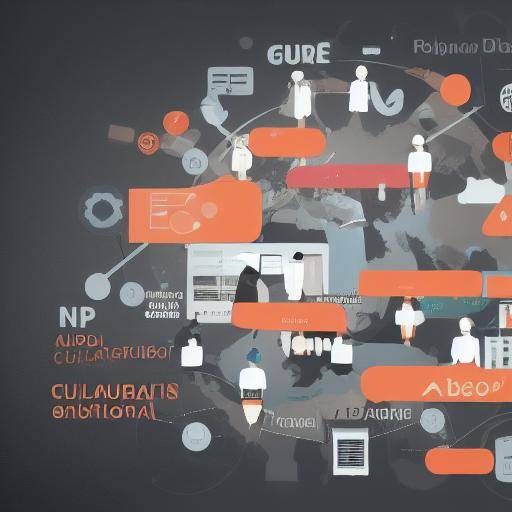
Intercultural communication is a fundamental aspect in a world as diverse as we inhabit. Developing skills in this area is essential for establishing deep personal relationships, understanding cultural intelligence and promoting diversity. In this article, we will explore the importance of intercultural communication, how to improve cultural intelligence and strengthen personal relationships. From its history and evolution to practical advice and future predictions, this complete content will be a valuable guide for those seeking to broaden their intercultural horizons.
Introduction
Intercultural communication is much more than just speaking a different language. It is a question of understanding the different cultural perspectives, values, beliefs and social norms that influence the way people communicate and interact with each other. In an increasingly interconnected world, the ability to effectively navigate through these cultural differences has become an essential skill both in the personal and professional spheres.
History and Background
The study of intercultural communication has its roots in the evolution of human society and the exchange between different communities. From exploration trips to world trade, interaction between cultures has played a crucial role in the evolution of intercultural communication.
In the modern context, intercultural communication has gained significant importance due to globalization, migration and increasingly frequent international interactions. Organizations have also recognized the need to develop a deeper understanding of intercultural communication to foster inclusive environments and facilitate collaboration in multicultural teams.
Analysis in Deep
Intercultural communication benefits not only at a personal level but also at a professional level. Intercultural skills enable people to engage more effectively in multicultural environments, which in turn leads to greater productivity and creativity. However, it also presents challenges, such as cultural misunderstandings, lack of cultural sensitivity and intercultural conflicts.
At present, cultural intelligence has become a growing issue of interest. This refers to the ability to adapt to different cultural environments and to understand the complexities of different cultures. Improving cultural intelligence involves developing specific skills, such as empathy, cognitive flexibility and effective communication in intercultural contexts.
Exhaustive examination
The practical applications of intercultural communication and cultural intelligence manifest in various ways, from international diplomacy to the management of multicultural teams in business environments. Best practices in intercultural communication include the ability to listen actively, the willingness to learn about other cultures and adaptation to cultural behaviour and expectations.
At the same time, it is important to consider both the pros and cons of intercultural communication. While it can enrich personal and professional experiences, it also requires a continuous effort to overcome cultural barriers and avoid misunderstandings.
Comparative analysis
Cultural intelligence and personal relationships are intrinsically linked to intercultural communication, both of which involve understanding and managing cultural differences. While cultural intelligence focuses on knowledge and adaptation to cultural diversity, personal relationships focus on establishing meaningful connections through these differences.
Practical Tips and Accessible Tips
- Learn about other cultures: Education and exposure are fundamental to developing cultural intelligence.
- Practice empathy: Try to understand the cultural perspectives of others and be aware of your own cultural assumptions.
- Improve your linguistic skills: Learning a new language not only facilitates communication, but also demonstrates respect for the culture of others.
- Foster open dialogue: Cultivating an environment in which cultural differences are respected and valued is essential to building strong interpersonal relationships.
Industry Perspectives and Expert Reviews
According to industry experts, intercultural communication is becoming a key requirement in an increasingly globalized world. The ability to adapt to different cultural environments has become crucial for professional and personal success. Organizations are implementing cultural intelligence training programmes and promoting diversity to maximize the effectiveness of multicultural teams.
Case Studies and Real Life Applications
An exemplary case of the importance of intercultural communication is observed in the business sector, where multicultural teams require a deep understanding of cultural differences to operate effectively. At the same time, in everyday contexts, such as social interaction and tourism, intercultural communication plays a crucial role in creating meaningful and enriching connections.
Future Trends and Predictions
As the world continues to globalize, intercultural communication is expected to become an even more critical aspect of daily life. Cultural diversity will continue to increase, which will require greater competition in cultural intelligence to facilitate harmonious and collaborative coexistence. Technology will also play an important role in connecting people from different cultures, which will require an intuitive understanding of intercultural communication in virtual environments.
Conclusion
In short, intercultural communication, cultural intelligence and personal relations are fundamental elements in a diverse world. Developing skills in these areas not only enriches our personal interactions, but also promotes success in professional contexts. In understanding the importance of intercultural communication, we can move towards a more inclusive and respectful future of diversity.
Frequently asked questions
Why is intercultural communication important?
Intercultural communication is crucial in a globalized world, as it facilitates mutual understanding, promotes diversity and avoids cultural misunderstandings.
How can I improve my cultural intelligence?
Improving cultural intelligence involves educating yourself about different cultures, practicing empathy and learning to adapt to multicultural environments.
In what environments is intercultural communication crucial?
Intercultural communication is fundamental in international professional environments, tourism, intercultural medicine, education and any situation involving intercultural interaction.
What challenges are presented in intercultural communication?
Challenges in intercultural communication include cultural misunderstandings, shocks of values and norms, as well as adaptation to different communication styles.
How to promote deep personal relationships through cultural differences?
The promotion of open dialogue, respect for cultural differences and the practice of empathy are fundamental to promoting meaningful personal relationships through cultural differences.
What are future trends in intercultural communication?
Intercultural communication is expected to be even more crucial in a globalized and diverse world, and technology plays an important role in connecting people from different cultures.
I hope this article has provided you with valuable information to improve your skills in intercultural communication, cultural intelligence and personal relationships!




